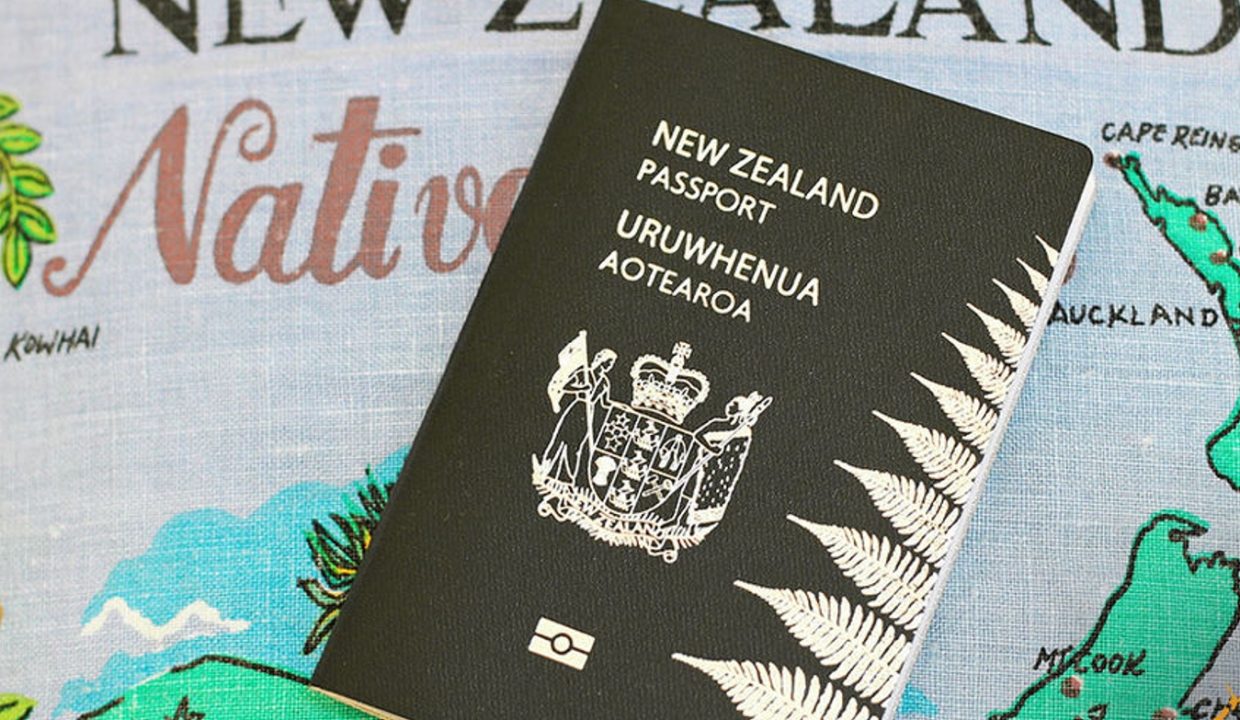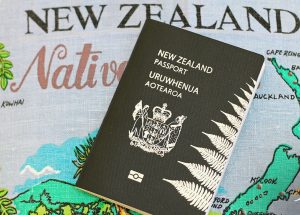
뉴질랜드 시민권법 개정 논란, 출생지 아닌 부모 신분으로 판가름
New Zealand Citizenship Law Controversy: Decisions Based on Parents’ Status, Not Birthplace
Debate Surrounds Citizenship Law as Children Born in New Zealand Face ‘Undocumented’ Status
Following the 2006 amendment to New Zealand’s Citizenship Act, the country shifted away from granting citizenship based on birthplace, leading to a surge in cases where children born in New Zealand are not automatically granted citizenship, instead becoming undocumented. Matt Robson, an immigration law expert and former Member of Parliament, has strongly criticized the law change, calling it “inhumane” and urging a review. He stated, “Since the amendment, hundreds of children from immigrant families have been forced to appeal or leave New Zealand because of this law.”
University Bound, Only to Discover Undocumented Status
The issue gained renewed attention with the case of 18-year-old Daman Kumar, born in New Zealand to Indian parents. Despite being born in the country and never having visited India, Kumar was unable to acquire citizenship because his parents were not permanent residents. He now faces deportation and is in the process of making a final appeal to Chris Penk, the Deputy Minister for Immigration. Robson pointed out, “Children born before 2006 automatically received citizenship, but those born afterward are unfairly categorized as undocumented.” He added, “Many students only discover their undocumented status when preparing for university or employment after high school graduation.”
Divided Families: Victims of Immigration Policy
A troubling trend is emerging where some siblings are granted citizenship, while others are left without, creating what many are calling ‘divided families.’ As a result, parents find themselves scrambling to file appeals to secure citizenship for their children. This highlights the real-world consequences of the revised Citizenship Act, showing how it is affecting families on a practical level.
Immigration Department’s Decisions: Questions of Fairness Raised
Robson also criticized the current application of the law, arguing that the Immigration Department’s practices are undermining fairness. “The Deputy Minister has delegated his responsibilities to staff, leaving decisions to be made by those who may not have the proper oversight,” he said. “It is a violation of constitutional principles for appeals to be handled within the same department that made the original decisions.” In response, Deputy Minister Penk stated, “While I can intervene in cases with special circumstances, there are no current plans to amend the Citizenship Act.”
Amendment Lacks Economic Rationale, Critics Say
The 2006 amendment to the Citizenship Act was introduced during the tenure of former Prime Minister Helen Clark’s Labour government, with the support of the National Party. Prior to the amendment, New Zealand followed a “birthright citizenship” policy, granting citizenship to all those born in the country. However, under the new law, children born in New Zealand must have parents who are permanent residents or above to qualify for citizenship. Robson, who opposed the amendment at the time, criticized it as a “hastily implemented policy” driven by administrative convenience. He argued that there was no economic or statistical basis for removing birthright citizenship, claiming that the policy change was fueled by a vague concern among authorities that the system might be abused.
Ongoing Debate Over Citizenship Law Expected to Intensify
As the children of immigrants born in New Zealand continue to grow into adulthood without citizenship, the controversy surrounding the 2006 amendment is expected to remain a hot topic. The issue is likely to remain a significant social concern in New Zealand, with increasing calls for a reconsideration of both the citizenship and immigration policies.

뉴질랜드 시민권법 개정 논란, 출생지 아닌 부모 신분으로 판가름
시민권법 개정 이후, 뉴질랜드 출생 이민자 자녀들의 ‘불법체류자’ 신분 논란
2006년, 뉴질랜드의 시민권법 개정 이후 일부 출생지 시민권을 보장하던 제도가 큰 변화를 겪었다. 이에 따라 뉴질랜드에서 태어난 일부 아이들이 출생 당시에는 시민권을 자동으로 얻지 못하고 불법체류자로 전락하는 사례가 급증하고 있다. 이민법 전문가이자 전직 국회의원인 맷 롭슨(Matt Robson)은 해당 법 개정이 “비인도적이며, 재검토가 필요하다”고 강하게 비판했다. 그는 “개정 이후 수백 명의 이민자 가정 자녀들이 이 법을 이유로 항소하거나 뉴질랜드를 떠나야 했다”고 말했다.
대학 입학 직전, 불법체류자로 밝혀져… 뒤늦은 고충
최근 이 문제는 인도 출신 부모 사이에서 태어난 18세 다만 쿠마르(Daman Kumar)의 사례로 다시 주목을 받았다. 쿠마르는 뉴질랜드에서 태어나 본국인 인도에 가본 적이 없으나, 부모가 영주권자가 아니라는 이유로 시민권을 취득하지 못했다. 현재 그는 강제 출국 명령을 앞두고 있으며, 크리스 펭크(Chris Penk) 이민부 차관에게 마지막 항소를 진행 중이다. 롭슨 전 의원은 “2006년 이전 태어난 아이들은 자동으로 시민권을 얻었지만, 그 이후 태어난 아이들은 불법체류자 신분이 되는 불합리한 상황이 벌어지고 있다”고 주장했다. 그는 또 “많은 아이들이 고등학교 졸업 후 대학 진학이나 취업을 준비하면서야 자신이 불법체류자라는 사실을 알게 된다”고 덧붙였다.
분리된 가족, 이민 정책의 피해자들
특히 형제나 자매 중 한 명은 시민권을 가지고, 다른 한 명은 시민권을 가지지 못한 ‘분리된 가족’이 되는 사례가 빈번하게 발생하고 있다. 이로 인해 부모들은 자녀들의 시민권을 보장받기 위해 뒤늦게 항소를 준비하는 상황에 놓이기도 한다. 이러한 문제는 개정된 시민권법의 현실적인 부작용을 여실히 보여준다.
이민부의 판단, 공정성에 의문 제기
이민법 전문가 롭슨 전 의원은 현행 법 적용 방식에 대해 문제를 제기했다. 그는 “이민부 차관이 바쁜 업무로 인해 본인의 권한을 실무진에게 위임하고 있어, 공정한 판단이 이루어지지 않고 있다”고 비판했다. 이어 “이민부 내부에서 항소 심사가 진행되는 것은 헌법 원칙에 어긋난다”며 정책의 근본적인 문제를 지적했다. 이에 대해 펭크 차관은 “특별한 사정이 있는 사례에 대해서는 개입할 수 있지만, 현재 시민권법 개정 계획은 없다”고 밝혔다.
출생지 시민권 부여, 경제적 근거 부족한 개정안
시민권법 개정은 2006년 헬렌 클락 전 총리(노동당) 정부 시절 도입되었으며, 당시 국민당도 이를 지지했다. 개정 전까지 뉴질랜드는 출생지에 따른 시민권 부여(birthright citizenship) 방식을 채택했으나, 2006년부터는 부모가 영주권 이상을 보유해야 자녀가 시민권을 취득할 수 있도록 법이 변경되었다. 롭슨 전 의원은 “당시 개정안을 반대한 이들은 이 법이 신생아를 불법체류자로 만들 것이라고 우려했다”며 “이 법은 행정적 편의를 위해 졸속 처리된 정책”이라고 주장했다. 그는 “출생지 시민권 폐지를 위한 경제적 이유나 통계적 근거는 전혀 없었고, 관리당국의 막연한 우려로 인해 정책이 강력해졌다”고 비판했다.
시민권법 개정 논란, 앞으로도 계속될 전망
현재 뉴질랜드에서 태어난 이민자 자녀들이 시민권을 받지 못한 채 성인이 되어가면서, 시민권법 개정에 대한 논란은 더욱 뜨거워질 것으로 보인다. 앞으로 이 문제는 뉴질랜드 사회의 큰 이슈로 자리잡을 가능성이 크며, 시민권과 이민 정책에 대한 재검토가 필요하다는 목소리가 커질 것으로 예상된다.
